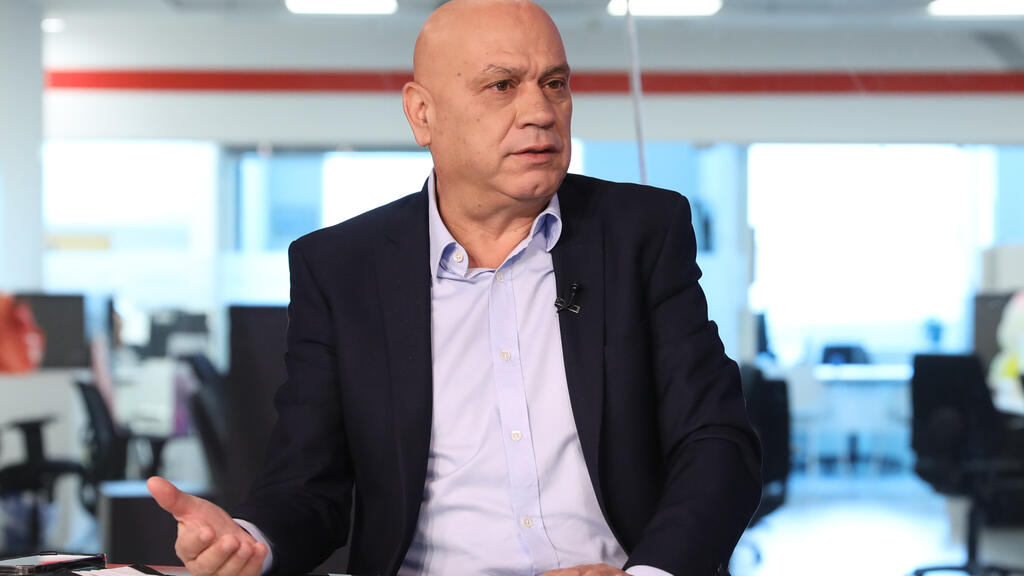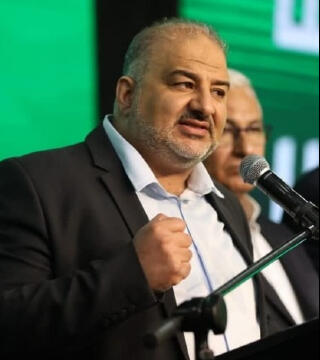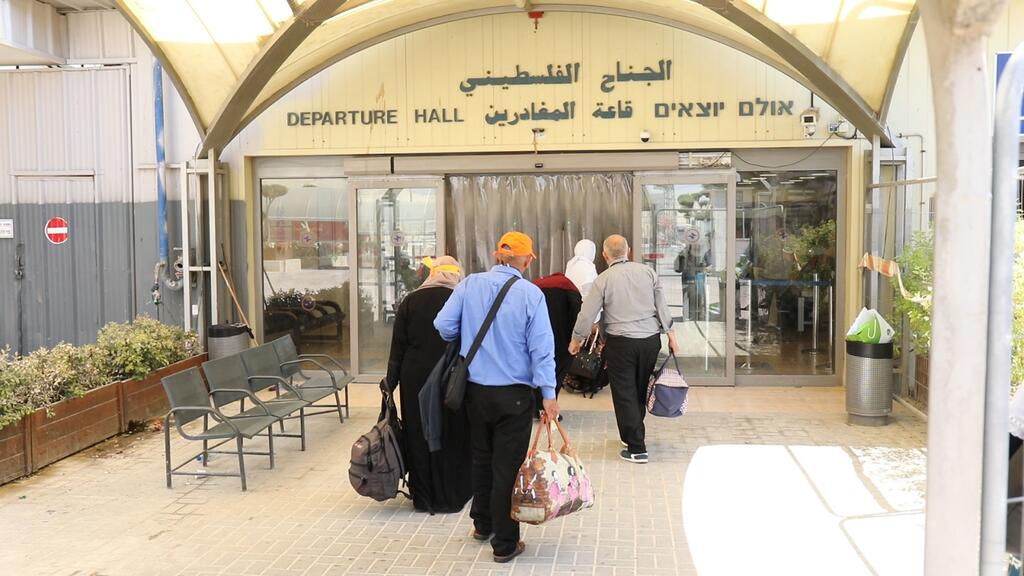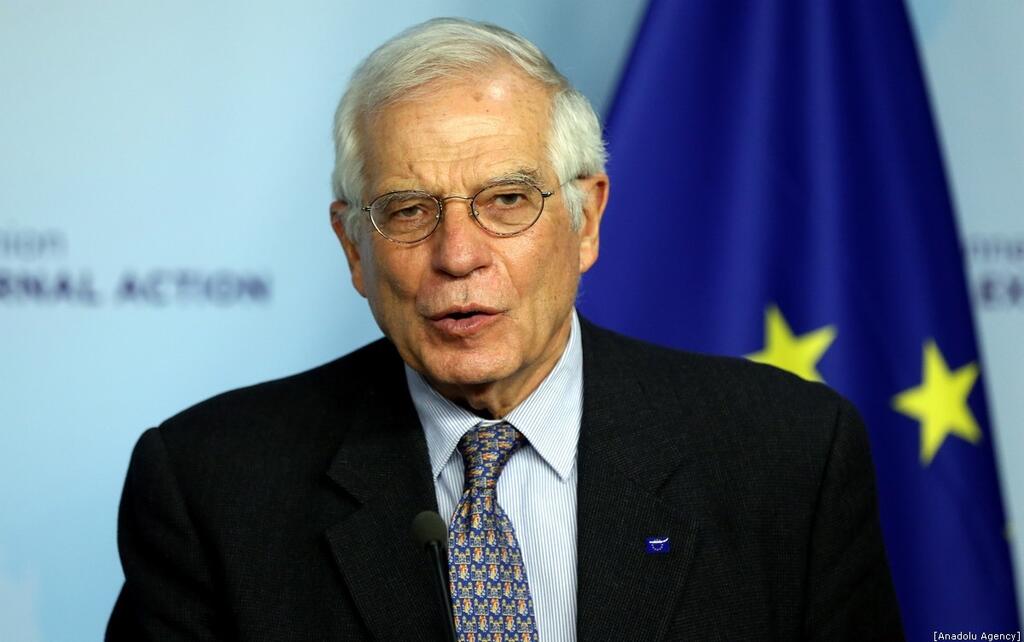Getting your Trinity Audio player ready...
With no political process involving the Palestinians seen on the horizon, Israel’s government and the international community have made efforts instead to strengthen the Palestinian economy, which is struggling from a lack of sufficient revenue and an increased absence of donor funding.
However, the Palestinian Authority says, the economies of the PA and Israel are directly intertwined, and one cannot exist without the other.
This was the context for Tuesday’s meeting of the Ad Hoc Liaison Committee (AHLC) in Brussels. Born of the Oslo process meant to bring peace between Israel and the Palestinians, the semi-annual meetings of the AHLC serve as the principal policy-level coordination mechanism for development assistance to the Palestinian territories.
The AHLC is chaired by Norway and co-sponsored by the European Union and the United States. In addition, the United Nations participates, together with the World Bank and the International Monetary Fund (IMF). The AHLC seeks to promote dialogue between donors, the Palestinian Authority and the government of Israel.
On Tuesday, representatives from the U.S., the EU, the UN, the World Bank, the IMF and other Arab and donor countries took part.
“I say, frankly, that it’s in our interest and in the international interest to have a strong Palestinian Authority,” Israel’s Regional Cooperation Minister Isawi Frej said immediately following Tuesday’s meeting. He attended the meeting along with Palestinian Authority Prime Minister Mohammad Shtayyeh. The meeting was hosted by EU Foreign Affairs head Josep Borrell and chaired by Norwegian Foreign Minister Anniken Huitfeldt.
7 View gallery
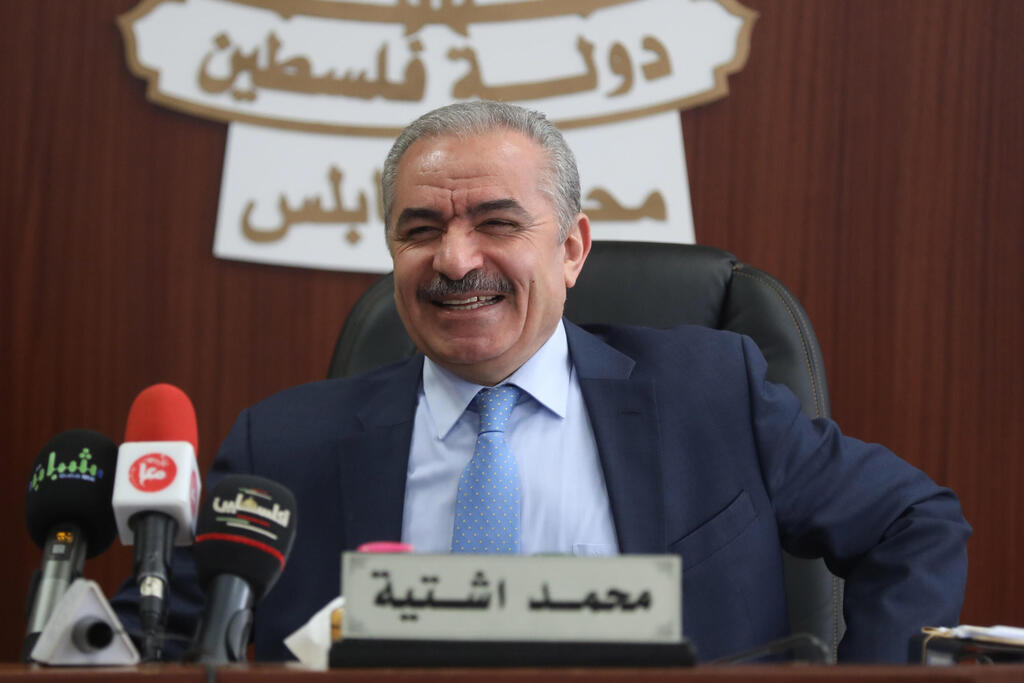

Palestinian Prime Minister Mohammad Shtayyeh during cabinet meeting held in Nablus
(Photo: EPA)
“We discussed all of the achievements in the six months since the last (AHLC) conference,” Frej said, adding that Israel "supported the Palestinian economy with more than 20,000 worker permits for the Gaza Strip, which is the highest number in the last 15 years".
"We are working on developing the eVAT (electronic Value Added Tax), which will digitize the invoices between us and the Palestinians and will increase the income tax of the PA, which is very important. The import and export of goods increased to the West Bank, thanks largely to an agreement we signed with Jordan. Gaza reconstruction, water, electricity, an Allenby Bridge expansion – we’re working on all of it.
“The financial situation of the PA is very bad, and this is a critical moment for the Palestinians and the region,” Frej added.
Prior to Tuesday’s meeting, Huitfeldt offered her assessment of the situation between Israel and the Palestinians.
“There has been increased cooperation between Israel and [the Palestinians] in recent months to find solutions to key issues relating to the economy, infrastructure and trade. However, there are still no political negotiations between the parties. Violence must end and the parties must take steps to resume negotiations of a two-state solution,” Huitfeldt said.
Since the last meeting held in Oslo in November 2021, Germany, the Netherlands and the United Kingdom have headed individual working groups. The three countries are working together to promote progress in areas such as water, trade and the Palestinian economy. This has created a new dynamic in the AHLC. The Israelis and Palestinians are discussing relevant issues more constructively than has been the case for years, Huitfeldt added.
The AHLC is one of the few forums in which Israelis and Palestinians jointly participate in meetings with major allies to discuss how best to assist the Palestinians.
The World Bank reported on Monday that foreign aid to the Palestinian Authority plummeted from 27% of gross domestic product in 2008 to just 1.8% of GDP in 2021. During the nearly two years of COVID-19 restrictions, when the critical tourism sector was paralyzed, more than 110,000 Palestinians slipped below the poverty line, with the World Bank reporting that income fell in more than 60% of Palestinian households, and 20% of the previously employed workforce found itself jobless.
7 View gallery
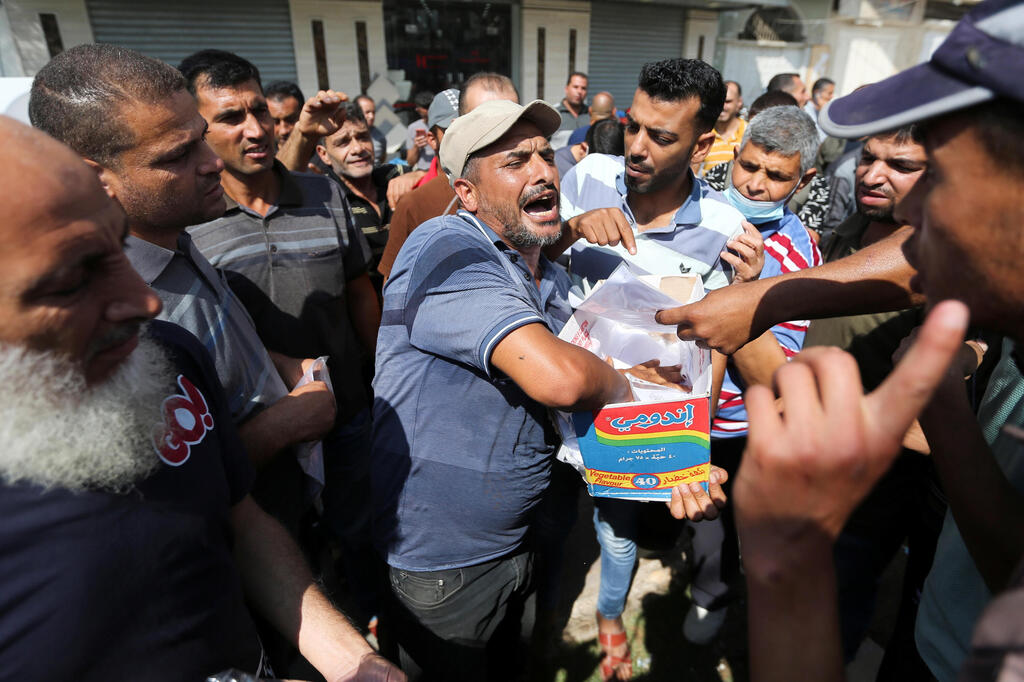

Palestinians gather to apply for Israeli work permits, in Khan Younis, in southern Gaza Strip
(Photo: Reuters)
The Palestinian economy grew 7.1% in 2021, which the World Bank attributed to coronavirus-related restrictions being significantly eased, along with an increase of nearly 30,000 West Bank Palestinians working in Israel.
Shtayyeh was vocally and consistently critical in Tuesday’s meeting about the lack of a peace process, which he blamed on Israel and said was directly connected to the PA’s struggles. He lambasted Israel’s withholding of a percentage of Palestinian tax revenues, which Israel implemented as an offset to the salaries the Palestinian Authority pays to terrorists who kill and maim Israelis, and which Israel has bypassed at times when it seemed the PA was on the verge of economic collapse.
Frej, a member of the left-wing Meretz party, stressed that a political settlement with the Palestinians simply isn’t in the cards given the fragile nature of the diverse Israeli government, comprised of nationalist, centrist and dovish parties, and includes the Islamist United Arab List-Raam party.
“The Palestinian prime minister said more than once in his speech that we need to see a political horizon. But our government deals only with issues that all elements agree with,” Frej said. “[Prime Minister Naftali] Bennett, [Ra'am party chief Mansour] Abbas, all of us agree that we need to strengthen the PA economically. We need to think about the present before we think about the future. It’s a problem to separate between the (political and economic) issues, but the European and the international community should understand the basic thing that, in order to have a good future, our hearts and minds will be together, and this is the first attempt to be together. We have goodwill and should be accepted. The political issue is too difficult to deal with because of government policies.”
While the international community is not generally hesitant to lay fault at the feet of Israel for the lack of Palestinian development, the UN, World Bank and EU have been insisting that the PA institute long-necessary reforms to create a more solid foundation for its economy, and to make it less reliant on international funding, which has dropped exponentially in recent years.
The Office of the Quartet, a grouping made up of the US, EU, UN and Russia which was developed to solve the Israel-Palestinian conflict, listed the completion of an eVAT agreement as among the most critical priorities.
A six-month pilot electronic VAT system, which has the potential to generate an additional $100 million per year for the PA, launched on March 6. By the end of April, some 2,200 Palestinian merchants had issued over 26,000 invoices using the Palestinian Authority’s online platform. On the Israeli side, where the use of the system is voluntary during the pilot phase, registrations have been lower, with 129 dealers issuing some 1,600 eVAT invoices so far.
The Quartet is calling for the signing of a memorandum of agreement, the completion of end-to-end testing and the implementation of any necessary regulatory changes required to make the eVAT system mandatory for an estimated 11,000 Israeli merchants by the end of the pilot phase in September.
The Quartet also has listed among the most urgent priorities the waiving or significant reduction of Israel’s 3% handling fee in levying and transferring customs taxes to the Palestinian Authority. There is also a dispute over past Allenby Bridge crossing fees, and on a formula for setting and sharing the crossing fee going forward. Israeli government committees have been established to deal with both issues.
There have also been discussions held on allowing the PA to purchase fuel from Israel without excise tax and VAT, reducing the overall handling fee charges by around 150 million shekels ($43.6 million) per year. The PA has demanded the transfer of the customs authority to its purview, an issue on which the Quartet said it hopes to reach an agreement by the fall meeting of the AHLC in New York.
“It’s not easy for the Palestinian Authority to implement some of the reforms being asked of them, because it means they’ll need to stop paying the salaries for some employees’ salaries and reform their domestic tax. They tried to do it. And there are times when we tried to help increase Palestinian revenues, such as giving them more of the fees at Allenby Bridge. We’ve tried a lot of things, but we can’t do it by ourselves. We need the Palestinians and the international community together. If we have goodwill, we will find a way,” said Frej.
“We need the atmosphere to be more relaxed, with no (terror) attacks. In the last 10 months, the situation has worsened,” said Frej.
Borrell concurred that the current tension is not conducive to progress on any front.
“This meeting is taking place against the backdrop of a deteriorating situation on the ground," he said.
"I am sorry to say that but it is the reality – a deteriorating situation on the ground. The recent attacks and violence in Israel and in the Palestinian territories have shown yet again the deeply unstable nature of the current reality and confirmed that the situation is not moving – not moving fast enough, or not moving at all – in the right direction. That is why our aim for this meeting is to get more concrete economic, fiscal, security and political results. Because, despite the political complexities, efforts must be made for the political process to restart.” said Borrell.
Among Frej’s priorities now is the convening of the Joint Economic Committee (JEC), which has not met since 2009. The committee’s formulation was agreed to by Israel and the PA in 1994, as part of the Paris Protocol, the economic component of the Oslo Accords. The committee, comprised of an equal number of Israelis and Palestinians, was supposed to hold substantial purview over the status of Palestinian workers in Israel, the issuance of work permits, and advancing issues connected to tourism, agricultural development, veterinary oversight and industry.
Frej said that he spoke with the foreign Minister Yair Lapid and Defense Minister Benny Gantz “and they both agreed to convene the JEC. I hope before the next donor country conference we will have had this meeting. It’s critical for us. We need to open the list of goods the Palestinians can import. We signed an agreement with the Jordanians to increase trade movement between the Jordanians and the Palestinians to at least $700 million a year (from $160 million). In order to reach this aim, we must have the JEC functioning.”



